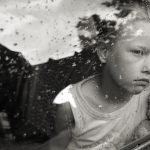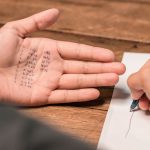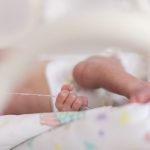Older Adults Less Able to Recognize Their Errors
Node Smith, ND
Maybe there’s some truth in the adage, “you can’t teach an old dog new tricks.” If those new tricks necessitate an awareness of mistakes made during the learning process, perhaps it is harder for older people to learn new things. At least this may be an implication of a recent study which shows that older people may be less able to recognize errors that they’ve made.1
Computerized testing scenario used in the study
The study was conducted at the University of Iowa. A computerized testing scenario was used to assess and accurately gauge whether both young adults and older adults realize that they have made a mistake.
Interesting results on the performance of the same test among older and younger adults
Interestingly, older adults and younger adults performed about the same on the actual test, which involved looking away from an object on the screen. However, younger adults were much more likely to acknowledge when they actually had failed to look away from the object. Older adults, on the other hand were actually more likely to refuse to admit that they had made a mistake; adamant that they had performed better than they actually did. The tasks were performed by the older adults just as well, though more slowly. It was noted as ‘interesting’ that there was an impaired ability to recognize errors.
Research offers glimpse into how older adults perceive their abilities, decisions and performance
The research offers a glimpse into how older adults may perceive their own abilities, decisions and performance. This has implications in how older individuals judge their own ability to do every day tasks such as drive, or how regularly they take medications. The researchers point out that “realizing fewer errors can have more severe consequences, because you can’t remedy an error that you don’t realize you’ve committed.”
Study assessed 38 younger adults and 39 older adults
The study assessed 38 younger adults (mean age of 22 years) and 39 older adults (mean age of 68 years). The tests involved looking away from a circle appearing within a box on the side of a screen. The test is simple, yet it is human nature to want to focus on something novel in the field of vision. About 20 percent of the time, both groups were found to give in to the urge to glance at the circle before shifting their vision. After each failed instance, the participant was asked whether they had made an error, and to rate how sure (from “unsure” to “very sure”) of their error, or lack thereof.
Older individuals correctly assessed their errors 63% of the time
Younger individuals were accurate in assessing their errors 75 percent of the time. Older individuals were only correct 63 percent of the time. So, about ⅓ of the time, the older participants didn’t realize they made a mistake. In addition, the younger participants were much less confident in instances that they did not recognize their error, or they questioned their performance to a greater extent, in instances where they had indeed made errors.
Researchers also measured pupil dilation as a confirmatory measurement
The researchers also measured pupil dilation as a confirmatory measurement of the participants’ authentic assessment of their performance. Pupils are seen to dilate when something unexpected happens – fright, surprise, etc. Pupils also dilate when people think they have made a mistake. The pupil measurements showed dilation when younger adults thought they erred, and less so when they did not recognize errors. In older adults, the pupil dilation was completely absent in instances where they did not recognize their errors, and reduced in comparison to the younger adults when they did assess errors accurately.
Source:
- Wessel JR, Dolan KA, Hollingworth A. A blunted phasic autonomic response to errors indexes age-related deficits in error awareness. Neurobiol Aging. 2018;71:13-20.
Image Copyright: <a href=’https://www.123rf.com/profile_halfpoint’>halfpoint / 123RF Stock Photo</a>
 Node Smith, ND, is a naturopathic physician in Portland, OR and associate editor for NDNR. He has been instrumental in maintaining a firm connection to the philosophy and heritage of naturopathic medicine among the next generation of docs. He helped found the first multi-generational experiential retreat, which brings elders, alumni, and students together for a weekend camp-out where naturopathic medicine and medical philosophy are experienced in nature. Four years ago he helped found the non-profit, Association for Naturopathic ReVitalization (ANR), for which he serves as the board chairman. ANR has a mission to inspire health practitioners to embody the naturopathic principles through experiential education. Node also has a firm belief that the next era of naturopathic medicine will see a resurgence of in-patient facilities which use fasting, earthing, hydrotherapy and homeopathy to bring people back from chronic diseases of modern living; he is involved in numerous conversations and projects to bring about this vision.
Node Smith, ND, is a naturopathic physician in Portland, OR and associate editor for NDNR. He has been instrumental in maintaining a firm connection to the philosophy and heritage of naturopathic medicine among the next generation of docs. He helped found the first multi-generational experiential retreat, which brings elders, alumni, and students together for a weekend camp-out where naturopathic medicine and medical philosophy are experienced in nature. Four years ago he helped found the non-profit, Association for Naturopathic ReVitalization (ANR), for which he serves as the board chairman. ANR has a mission to inspire health practitioners to embody the naturopathic principles through experiential education. Node also has a firm belief that the next era of naturopathic medicine will see a resurgence of in-patient facilities which use fasting, earthing, hydrotherapy and homeopathy to bring people back from chronic diseases of modern living; he is involved in numerous conversations and projects to bring about this vision.









